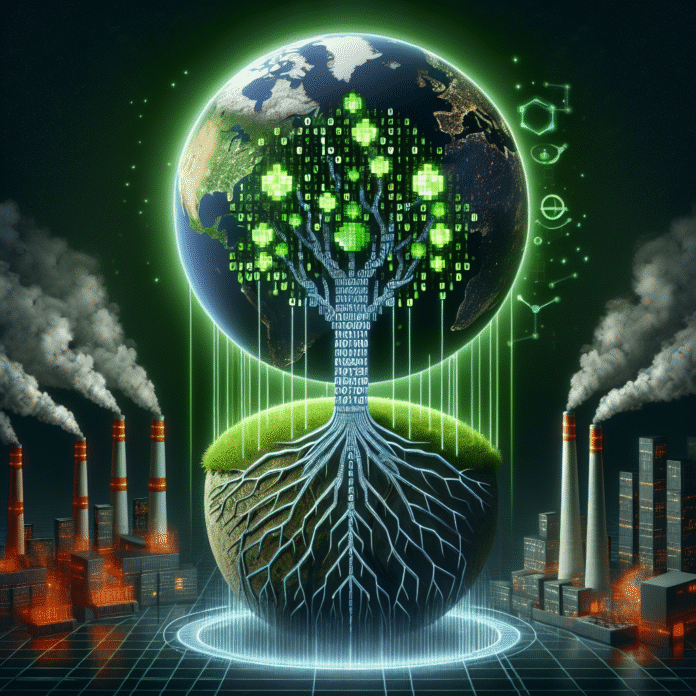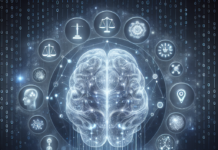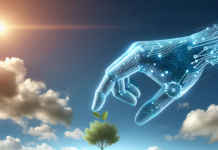The Role of AI in Climate Change: Tech Solutions for a Greener Planet
<section>
<h2>Introduction</h2>
<p>
Climate change is one of the most pressing challenges of our time. Rising global temperatures, erratic weather patterns, and ecological disruptions demand immediate action. Artificial Intelligence (AI) has emerged as a groundbreaking tool that can provide innovative solutions to tackle these challenges and facilitate a transition toward a more sustainable future.
</p>
</section>
<section>
<h2>AI Applications in Climate Change Mitigation</h2>
<p>
AI technologies are being integrated into various sectors to combat climate change. Here are some key areas where AI is making a significant impact:
</p>
<ul>
<li><strong>Energy Management:</strong> AI can optimize energy consumption in both residential and commercial buildings. Smart grids, powered by AI, enable the efficient distribution of energy and the integration of renewable energy sources.</li>
<li><strong>Predictive Analytics:</strong> AI algorithms analyze climate data to predict weather patterns and natural disasters, helping communities better prepare and respond to climate-related events.</li>
<li><strong>Carbon Footprint Tracking:</strong> Companies can use AI tools to monitor their carbon emissions in real time, allowing them to implement strategies to reduce their carbon footprint effectively.</li>
<li><strong>Sustainable Agriculture:</strong> AI-driven technologies can enhance agricultural practices by using data analytics for precision farming, reducing water consumption and increasing crop yields.</li>
</ul>
</section>
<section>
<h2>Adaptation Strategies Enhanced by AI</h2>
<p>
In addition to mitigation, AI plays a crucial role in helping communities adapt to the impacts of climate change. Here are a few strategies:
</p>
<ul>
<li><strong>Urban Planning:</strong> AI can assist in redesigning cities to be more resilient by analyzing urban layouts and proposing modifications that enhance sustainability.</li>
<li><strong>Disaster Response:</strong> Machine learning algorithms can optimize response strategies during natural disasters, enabling rescue teams to act more effectively.</li>
<li><strong>Wildlife Conservation:</strong> AI technology helps in monitoring endangered species and their habitats, ensuring necessary protections and conservation efforts are maintained.</li>
</ul>
</section>
<section>
<h2>Challenges and Ethical Considerations</h2>
<p>
Despite the promising applications of AI in combating climate change, there are several challenges and ethical considerations that must be addressed:
</p>
<ul>
<li><strong>Data Privacy:</strong> The collection and use of data must be handled responsibly to protect individual privacy and prevent misuse.</li>
<li><strong>Resource Inequality:</strong> There is a risk that AI technologies could be more accessible to wealthier nations, potentially widening existing global inequalities in climate response efforts.</li>
<li><strong>Algorithmic Bias:</strong> Biases in AI algorithms can lead to inaccurate predictions and solutions, necessitating rigorous testing and validation.</li>
</ul>
</section>
<section>
<h2>Conclusion</h2>
<p>
The integration of AI in efforts to combat climate change represents a hopeful frontier in our fight for a sustainable planet. By leveraging technology wisely, we can navigate the complexities of climate challenges and work towards achieving a greener future. However, it is essential to address ethical considerations and ensure equitable access to these technologies to maximize their global benefits.
</p>
</section>
<footer>
<p>For more information on AI and climate change, visit <a href="https://www.un.org/en/climatechange">the United Nations climate change page</a>.</p>
</footer>
Stay tuned for more relevant updates, Check out our Website







